Ansell Edge 48-193 Cold Work Gloves
The Ansell Edge 48-193 Cold Work Gloves are cotton jersey lined and conform to EN 511 for reliable protection in cold and wintry conditions. They are also PVC coated, making them ideal for working in greasy and oily environments.
Key Information
- Glove Codes: 48-193
- EN 388:2016 Rating: 3121A
- EN 511: 011
- EN 420
- Size Range: 10
- Supplied as a pair
Resistance of the Ansell 48-193 Work Gloves
The Ansell 48-193 Work Gloves have been tested in accordance with European standards to ensure high levels of performance. Please find the results below:
| Property | Resistance Level |
| Abrasion Resistance | Level 3 |
| Cut Resistance | Level 1 |
| Tear Resistance | Level 2 |
| Puncture Resistance | Level 1 |
| ISO Cut Resistance | Level A |
What Do the Resistance Ratings Mean?
The resistance ratings are tested in accordance with EN 388. Level 4 is the highest performance (except for Cut Resistance, which reaches Level 5), and Level 1 is the lowest resistance to be scored.
As such, the Edge 48-193 gloves provide great abrasion resistance and good tear resistance. For more information, please see the 'What Is EN 388?' tab at the top of the listing.
Cold Resistance of the 48-193 Work Gloves
The Ansell 48-193 Cold Work Gloves conform to EN 511. The results showed that they are waterproof and suitable for use during handling tasks in cold environments. Please see below for the results.
| Property | Resistance Level |
| Convective Cold Resistance | Level 0 |
| Contact Cold Resistance | Level 1 |
| Water Permeability | Level 1 |
More information about EN 511 can be found on our blog. Please see A Guide to Glove Safety EN 511.
Uses of the Ansell Palm-Coated Gloves 48-193
With a PVC coating and good abrasion resistance, the Ansell Edge Gloves can be used in a range of settings, including cold, dirty, oily, greasy, and outdoor dirty, and indoor environments. Suitable applications include, but are not limited to, the following:
- Automotive
- Cold objects handling
- Greasy objects handling
- Logistics
- Machinery and equipment
- Metal fabrication
- Oily objects handling
- Public utilities
- Warehousing
- Winter transportation of oil
The Ansell Edge Work Gloves are designated Category II gloves, meaning they are designed for medium-duty applications and intermediate levels of risk.
Key Features of the Ansell Edge 48-193 Work Gloves
- Latex-free construction for comfortable use
- Good abrasion resistance for improved safety during handling tasks
- Safety cuff for enhanced comfort and improved safety
- Cotton jersey lining for increased warmth in cold conditions
- PVC coating ideal for handling tasks in greasy and oily environments
- Cut and Sewn construction style for added comfort
Winter Handling Gloves
With a cotton jersey liner material and conformity to EN 511 (011), the Ansell Edge 48-193 Gloves are ideal for working in cold conditions. This makes them ideal for working outdoors in winter, as well as maintenance work in cool rooms and storage.
Oil and Grease Handling Gloves
In addition to being ideal for cold handling tasks, the 48-193 Cold Gloves are also suitable for providing reliable hand protection when working in greasy or oily environments. They are PVC coated and waterproof to ensure that your hands remain protected when handling objects covered in oil or grease.
Sizing of the Ansell Edge Work Gloves
The Ansell Edge 48-193 Work Gloves are available in the Size 10. To find out if this is the right size for you, measure the circumference of your hand as indicated in the image and match your measurement to the table below. The gloves have a length of 275mm to 290mm.

| Size | Hand Circ. (mm) | Hand Length (mm) |
| Size 10 | 254mm | 204mm |
Materials of the Ansell Work Gloves
- Liner Material: Cotton jersey
- Dipping Material: PVC
Documentation for the Ansell 48-193 Gloves
| Conformity Statement | Instructions for Use |
 |  |
Delivery
This item will be dispatched by Royal Mail, DPD courier or UPS courier.
The estimated delivery time for this item is usually 1-3 working days when ordered before 14:00, Monday to Friday (excluding Bank Holidays).
Orders that are placed before 14:00 on a working day are usually dispatched on the same day; for orders placed outside this timeframe, they are normally dispatched the next working day.
UK Delivery Charges
Certain orders delivered to the UK are subject to a delivery charge; refer to the table below for more information. Please note that all values are listed exclusive of VAT.
| Order Value | UK Delivery Charge |
|---|
| Up to £39.99 | £4.95 |
| £40.00 and over | FREE |
Please note: orders to NON-mainland UK and the Scottish highlands may be subject to an additional delivery charge, dependent on the size and value of the order.
What is EN 388?
You might have noticed that this product adheres to EN standard EN 388. EN standards ensure that the product you are buying meets the safety standards of the European Committee for Standardization (CEN), the highest standards organisation recognised by and working on behalf of the European Union. To pass any EN standard, a PPE product must undergo some of the most rigorous safety tests around.
There are many EN standards that our gloves adhere to. However, the EN standard that we’re concerned about here is EN 388. EN 388 stands for Mechanical Resistance, and informs you of your gloves' resistance to abrasion, cuts, tears and punctures.
How Do I Read the EN 388 Score?
Simply speaking, the higher the score that this product achieves, the better the product will be at resisting that hazard. Products will score between Level 0 and Level 4 for abrasion, tears and punctures, and if they weren’t tested for that hazard you will see N/A written instead of a number.
Cuts are a little different and, with the EN 388 standard rewritten in 2016, it means that gloves will either be tested to cut resistance or ISO cut resistance (sometimes called TDM cut resistance). Gloves tested to cut resistance will score between Level 0 and Level 5, and gloves tested to ISO cut resistance will achieve a score between Level A and Level F with the higher letter offering better cut protection.
Where Can I Find Out More?
This is just a brief overview of EN standard EN 388 so you know where you are standing. For further information, you can see the Introductory EN 388 Blog in our Knowledge Centre.


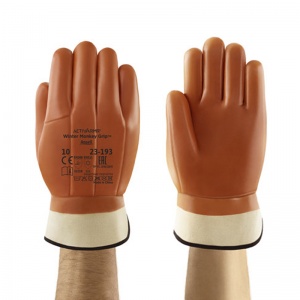
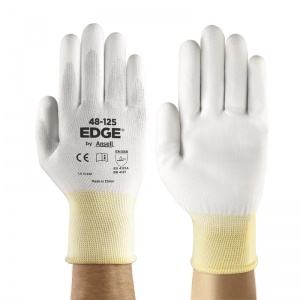
.jpg)
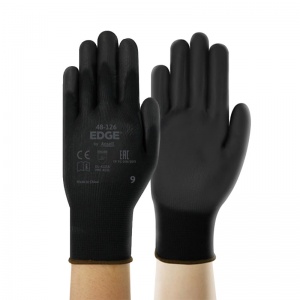
.jpg)
.jpg)
.jpg)
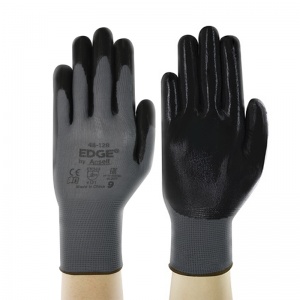
.jpg)
.jpg)
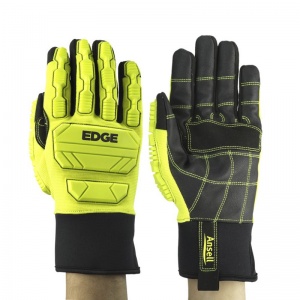
.jpg)
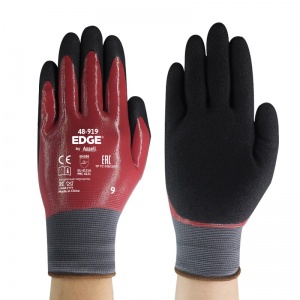
.jpg)
.jpg)
.jpg)